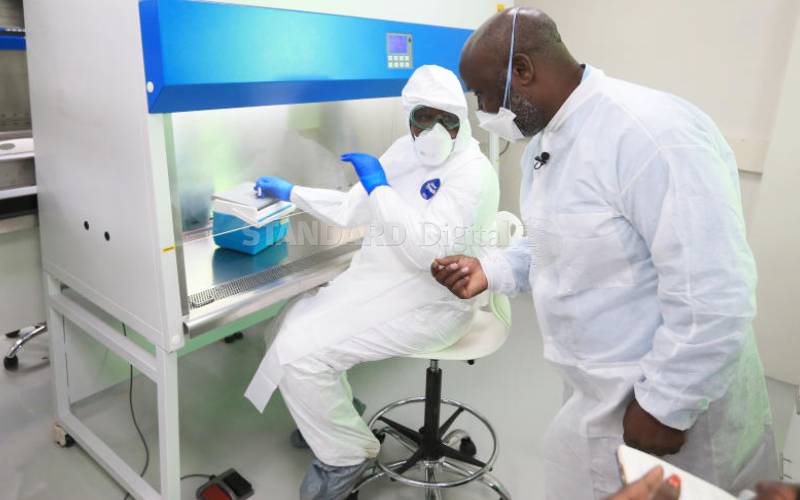×
The Standard e-Paper
Home To Bold Columnists

Scientist Lucy Kanyara (left) consults with Prof Wallace Bulimu at Kemri laboratory in Nairobi. [Stafford Ondego, Standard]
Researches have identified that the coronavirus causing Covid-19 has mutated, and presently, there are two variants of the virus as seen from genetic sequencing.